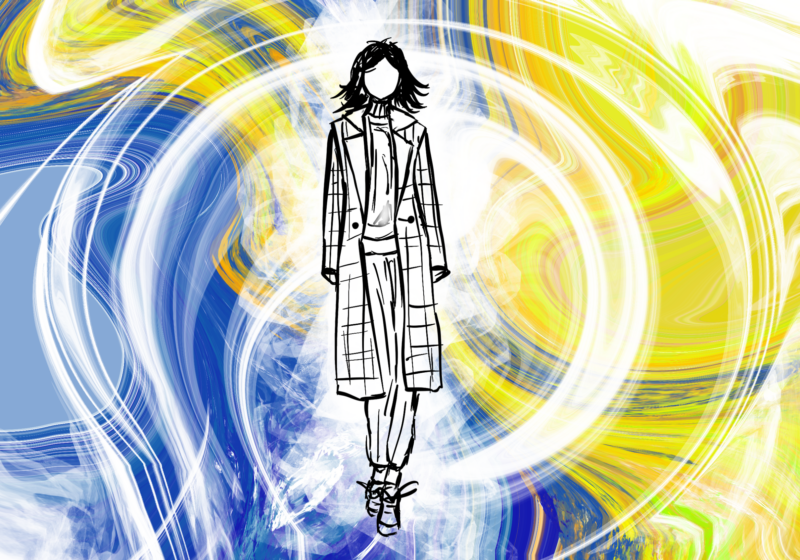Last week, nearly 40,000 copies of the annual Think Safe bulletin, compiled by UR Security, were distributed to students and faculty at the University, as well as to new employees and student applicants.
The Think Safe bulletin, published in the beginning of October of each year since 1992, includes information that is required by law to be reported.
Director of UR Security Walter Mauldin also pointed out that the publication includes statistics and other information not only for the River Campus, but also for the Eastman School of Music, the UR Medical Center and off-campus crime statistics.
“We provide information on the security, policies, practices, statistics and programs – it tells the story of about what we do in Rochester,” Mauldin said. “[Think Safe] also includes information about the health risk associated with the illegal use of drugs and alcohol [as well as] to help students comply with the laws by providing factual information.”
This year’s issue included a compilation of crime statistics for 2004, 2005 and 2006. The crimes varied from forcible sex offenses and burglary to arson and motor vehicle theft. Mauldin feels that all of the crimes are of equal importance.
“Always anything that involves a crime against a person is most important because of its injury to and threat to a person,” Mauldin said.
In terms of the sexual offenses that occurred in 2006, Mauldin noted that there were at least two instances reported to the University as “something that happened.” Think Safe cited four rapes in 2006, compared to one instance of rape in each of the previous years.
The Think Safe bulletin defined rape as “the carnal knowledge of a person, forcibly and/or against that person’s will.” Mauldin stressed the importance of the review process in order to determine whether the sexual offense is classified as rape.
Two cases in particular underwent extensive investigation, in which Security worked with University Intercessor and Coordinator of Disability Resources Kathleen Sweetland. The “proxy” information was then compared to the Security reports and, upon further review, Security determined that the two cases were both rape. Such inquiries thus remain critical so victims have the opportunity to receive the support available to them.
In addition to supplementing a report, Security uses the proxy reports to check for patterns in the offenses. For instance, if there seemed to be a pattern of a sexual offense occurring on a Saturday night at roughly the same time, the possibility of predatory behavior would be considered and investigated. Consequently, there would be publicity on ways to be “street smart” so students can be more aware of how to avoid those types of encounters.
In reference to burglary, the number of burglaries with “no force used” increased from 29 cases in 2005 to 36 cases in 2006. Burglary, as defined by Mauldin, is the “unlawful entering of another’s space with the intent to commit a crime therein.” The high number of burglaries with “no force used” points to a similarity between the crimes.
“This tells us that these offenses occurred in unlocked or unattended areas – you can control who comes in your room,” Mauldin said.
The number of burglaries with “force used,” in contrast to those with “no force used” decreased from 10 cases in 2005 to three cases in 2006.
The cases of arson also experienced a change, as there was no case recorded in 2005 and two cases documented in 2006. Think Safe defines arson as “any willful or malicious burning or attempt to burn, with or without intent to defraud a dwelling house, public building…” which is not a minor issue. The Campus Fire Safety Act of 2007 was recently passed, which ensures that students are informed about fire protection in buildings, such as sprinklers.
There has been a positive change in overall security as motor vehicle thefts have drastically decreased over the past three years: in 2004, there were 23 thefts; in 2005, 12 thefts; and in 2006, there were only four thefts. Mauldin notes that this is the lowest number Security has recorded since they began documenting vehicle thefts in 1992.
Mauldin attributes this success to three factors. The first factor is the increase of control in the parking lots, in terms of having more security officers present to monitor activity. Also, the cameras in the parking lots have been instrumental in allowing Security to intervene in suspicious activities occurring there. Third, a new parking program has been instituted in the URMC parking lot, called “3-D Parking,” in which there is a lock box and constant surveillance to protect vehicles. The new parking systems makes it physically more difficult to steal vehicles. There is also increased lighting, particularly in Lot 1, neighboring the road to Southside Living Center.
“In the city of Rochester and Monroe County, there has been some leveling off of the amount of vehicle thefts,” Mauldin said. “At the University, not only are we leveling off, but we are continuing to see a decline.”
Another positive modification has been the expansion of the blue phone system, with now over 135 phones accessible to those in need. While many members of the University have cell phones and it may seem that the blue phones are unnecessary and obsolete, Mauldin emphasized that the blue phones are still a dependent safety resource and are an assuring presence of security at UR. Also, since the University is converting some of its unused buildings into spaces for tenants, the future tenants are requesting cameras and blue light phones for safety measures. At Eastman, some blue phones have also been added to meet students’ requests, reconfiguring the placement of some phones so they can serve as a more convenient source of aid.
An important aspect of the blue phones is their constant upkeep – they are checked for proper use every week by Security, which reduces the odds that one may be malfunctioning.
The Think Safe bulletin is also available online on the Security Web site. Mauldin noted this form is useful because it can be easily updated.
Halusic is a member of the class of 2010.



